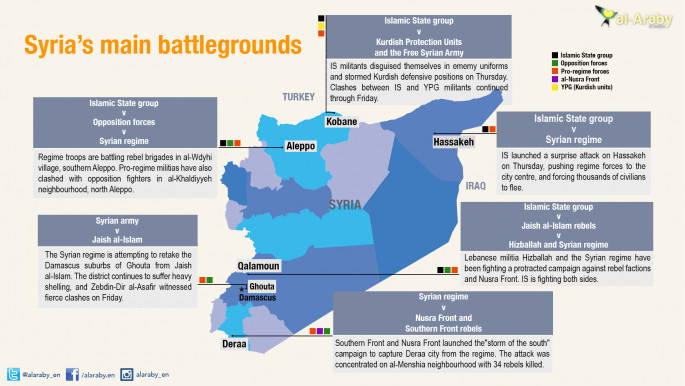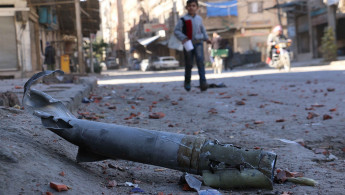Saudi Arabia pushes UN to condemn Iran, Russia
Saudi Arabia is pushing the UN General Assembly's human rights committee to condemn Iranian and Russian intervention in Syria, a move that prompted complaints on Tuesday from the delegations of Iran and Syria.
The non-binding draft resolution, prepared by Saudi Arabia and co-sponsored by Qatar and other Arab nations, the United States, Britain, France and other Western powers, was presented during a meeting of the assembly's Third Committee, which focuses on human rights.
The Syria resolution and similar declarations on Iran, North Korea and Myanmar are expected to be put to a vote as early as next week, diplomats said.
The vote would therefore come after a ministerial meeting on Syria in Vienna of the United States, Russia and other major powers later this week.
Without explicitly naming Russia, the draft would have the committee saying the UN "strongly condemns all attacks against the Syrian moderate opposition and calls for their immediate cessation, given that such attacks benefit so-called ISIL (Daesh) and other terrorist groups, such as al Nusra Front."
| The draft would strongly condemn "all attacks against the Syrian moderate opposition" |
ISIL refers to the former name of the radical jihadist group Islamic State (IS), previously also known as ISIS.
The language is aimed at Russia, which has been bombing opposition forces in Syria for over a month. Moscow says it is attacking IS but Western officials say over 80 percent of its strikes hit other rebel forces, include Western-backed ones.
| Read more:Saudi blogger sentenced to lashes wins free speech prize |
A Syrian delegate read a statement criticising the resolution. He said Saudi Arabia and Qatar have no right to lecture anyone on human rights. He said the resolution was an attempt to "politicise" the human rights situation in Syria.
An Iranian delegate echoed the Syrian remarks. Iran and Saudi Arabia are regional rivals. Tehran has strongly condemned the Saudi-led military intervention in Yemen.
The Syria resolution would condemn the presence in Syria of "all foreign terrorist fighters ... and foreign forces fighting on behalf of the Syrian regime, particularly the al Quds Brigades, the Islamic Revolutionary Guard Corps (of Iran) and militia groups, such as Hizballah."
The Iranian delegate complained about mention of Iran's IRGC alongside "terrorist" groups. Iran-backed Hizballah, based in Lebanon, has fought for years alongside Syrian government forces in the country's civil war.
The draft resolution demands foreign militias leave Syrian territory immediately.
It would blast IS and other Islamist militant groups for widespread rights abuses.
But most of the criticism in the draft is aimed at the government of Syrian President Bashar al-Assad, an ally of Russia and Iran whom Western and many Arab nations would like to see ousted. It voiced "grave concern at the disproportionate use of force by the Syrian authorities against its civilians."
 |
| [Click to enlarge] |
Saudi's controversial human rights role
In September, the United Nations came under fire for handing Saudi Arabia a key human rights role even though the Kingdom has a controversial human rights record on freedoms for women, minorities and dissidents.
Saudi Arabia was chosen to head a 5-member group of ambassadors, known as the Consultative Group, which has the power to select applicants from around the world for more than 77 positions dealing with country-specific and thematic human rights mandates.
Critics, including the wife of imprisoned pro-democracy blogger Raif Badawi - sentenced to 1000 lashes for blogging about free speech - said the appointment is "scandalous" and means that "oil trumps human rights".
According to leaked documents, Britain had conducted secret vote-trading deals with Saudi Arabia to ensure both states were elected to the UN human rights council (UNHRC) at the time.





 Follow the Middle East's top stories in English at The New Arab on Google News
Follow the Middle East's top stories in English at The New Arab on Google News


